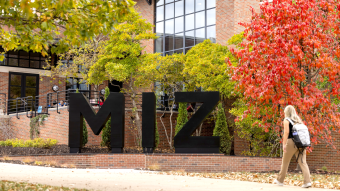May 7, 2021
Transcript:
Brian Consiglio: For patients with advanced heart failure, a left ventricular assist device, or LVAD, can be implanted into their chest to help pump blood throughout the body. This device can serve as a temporary solution while patients are on the waiting list for a permanent heart transplant.
In a recent study, MU’s Adrianne Frech analyzed data from the United Network for Organ Sharing and found that while access to these devices is relatively equal among different races, there is an underlying factor that contributes to Black patients being less likely to receive a heart transplant compared to white patients.
Frech: “It turned out that Black patients got those technologies when they were sicker. They were already on the heart transplant waiting list, whereas white patients were more likely to get the devices before they were so sick that they needed a new heart. So this late implantation of the LVAD did have consequences for their transplant outcomes.”
Consiglio: Since Black patients were more likely to receive the device later in their disease progression, they were more likely to be deemed ineligible for a heart transplant and taken off the waiting list.
As a medical sociologist, Frech’s research is aimed at articulating the more nuanced places where instances of inequality can occur within health care systems.
Frech: “You have to know where the problem is before you can address it. We are finding out that the inequality is, ‘How sick are you before you get this device,’ and then research lets us articulate the consequences of that, and then from there we can look at policies that can help to address the causes of the inequalities so we don’t experience the consequences to the same degree.”
Consiglio: For more on this research, visit showme.missouri.edu.
I’m Brian Consiglio, with a Spotlight on Mizzou.



